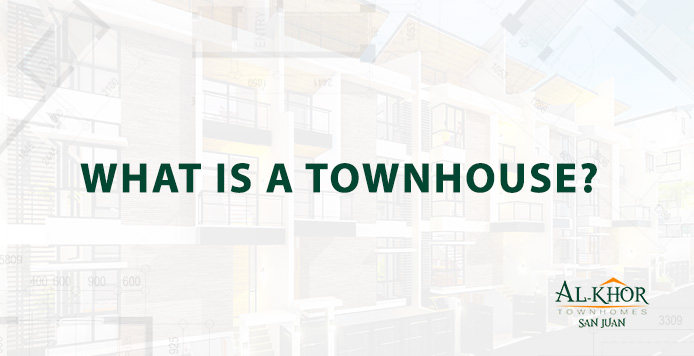A townhouse is described as a terraced home in an urban area, a luxurious dwelling in a big city occupied entirely by one family. It is one of a row of houses joined by common sidewalls, with multiple floors and fashionable in character, often having the main living room on the first floor and a garage on the ground floor.
 The term was originally used in Great Britain to refer to the city residence (usually in London) of a noble or wealthy family, members of the landed gentry, whose main or largest residence was a mansion in the countryside where they lived for much of the year. Since the 18th century, landowners and their servants would move to a townhouse during the social season when major balls and charity events would happen.
The term was originally used in Great Britain to refer to the city residence (usually in London) of a noble or wealthy family, members of the landed gentry, whose main or largest residence was a mansion in the countryside where they lived for much of the year. Since the 18th century, landowners and their servants would move to a townhouse during the social season when major balls and charity events would happen.
In North America, the townhouse preceded the automobile. It denotes a house with multiple floors and large living spaces, often with servants’ quarters, within walking or mass-transit distance of business and industrial areas of the city, but luxurious enough for the wealthy. Townhouses are expensive in major cities of the US and Canada where single detached family homes are not common.
These days, the term townhouse is used to describe units copying a detached home that is attached to a multi-unit complex. As differentiated from living units called apartments, townhomes usually consist of multiple floors and have their own outside door as opposed to common access in hallways.
In Asia, Australia, and South Africa, the definition of the term adheres to the North American usage. Townhouses are generally found in large complexes with high security and resort-type facilities such as swimming pools, gyms, parks, and playground equipment. In thickly-populated Asian countries dominated by high-rise residential apartment blocks such as Hong Kong, townhouses in private housing developments remain almost exclusively owned by the very rich because of their rarity and the large sizes of the units, selling as much as US$7,400 per square foot.
 In the Philippines, townhouses are mostly considered as “starter homes” for new families who do not want to live in condo units but are not yet prepared to own a more costly but more permanent house and lot. They are also deemed as good investments for property owners by renting them out to multiple tenants.
In the Philippines, townhouses are mostly considered as “starter homes” for new families who do not want to live in condo units but are not yet prepared to own a more costly but more permanent house and lot. They are also deemed as good investments for property owners by renting them out to multiple tenants.

